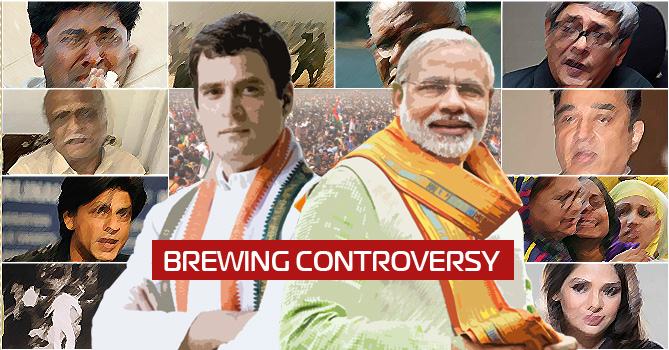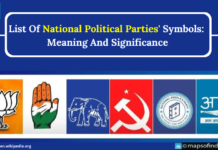Is India becoming intolerant?
India as a nation has had its instances of religious intolerance for as long as it has existed as a historic and political entity. Right from the Direct Action Day that turned Calcutta into a stage of bloodbath and gore before the Independence, Indira Gandhi being murdered by her own bodyguards for religious reasons and the resultant backlash that Sikhs suffered afterwards, the Bombay Riots of 1993, the Godhra genocide of 2001 to the recent events at Muzaffarnagar, there are instances aplenty where India’s secular identity has been faced with embarrassing questions. The situation has only been aggravated by the recent gunning down of rationalist and Kannada writer MM Kalburgi and lynching of a man in Dadri for allegedly consuming beef, preceded by the governments of Maharashtra and Gujarat banning consumption of beef.
Speaking on the matter, noted economist Bibek Debroy reasoned that such levels of intolerance have always existed and it would be foolish on our parts if we do not acknowledge it. He believes that if quantitative parameters like communal violence, religious intolerance, caste and gender discrimination, freedom of expression and the like are taken into consideration, it will become clear that such instances have been prevalent. It is not on the rise now, but has always been an intrinsic part of the intellectual circuit.
What flared the protests?
Looking back, ever since CPI leader Govind Pansare was shot in February 2015 for his autobiography on Shivaji titled “Shivaji Kaun Hota”, there has been latent discontent among the thinking population of the nation. When Kalburgi, who is known for his progressive ideas on caste and communalism, was shot in August, the intellectuals retaliated to growing intolerance and rise of unwarranted fringe religious groups by returning their awards.
Some of the prominent names in this regard have been literary figures like Uday Prakash, Nayantara Sahgal, CR Prasad, KS Ravikumar, EV Ramakrishnan, Surjit Patar, Baldev Singh Sadaknama, Hardev Chauhan, Rajesh Joshi, Manglesh Dabral, Ghulam Nabi Khayal, and GN Ranganatha Rao, poets Mandakranta Sen, Darshan Buttar, and Jaswinder, and a famed translator named Chaman Lal. They have been joined by Maya Rao, a noted danseuse and theatre performer, Bengali actor Sudipta Chakraborty, and nationally-reputed filmmaker Dibakar Banerjee. They have also been supported by Shabana Azmi.
All of them have cited the issue of growing intolerance – as well as restrictions being imposed on freedom of expression – as the main reason for such actions. Author and activist Arundhati Roy feels that these nuances of violence are an attack on the ‘collective IQ’ of the people and one needs to stand up to it. Shahrukh Khan, too, is of a similar opinion which has given a new dimension to this intellectual movement.
Be it less vehement, the government and Hindu activists, have in their own way reacted to the incidence of returning of awards. Barbs were traded as usual between Narendra Modi and Rahul Gandhi, with the latter criticizing the supposed intolerant attitude of the government and the former hitting back with a jibe at him. Mukhtar Abbas Naqvi had stated that people returning the awards have been forgotten a long time back perhaps implying that this is an attempt on their part to come back to limelight yet again. Rakesh Sinha, an RSS sympathizer, was of the opinion that the ones returning the awards were ones who had protested the ascent of NDA to power in 2014, may be implying that the motive is purely political and not cultural and humanitarian as it is being made out to be. Arun Jaitley has stated that these intellectuals are staunch opponents of BJP and the opinions of Uma Bharti were on similar lines.
Rajnath Singh advised people returning awards to refrain from doing so and speak to Narendra Modi instead. The CM of Maharashtra termed the whole gesture as a form of hypocrisy stating that their motives are suspicious. The addition of Shah Rukh Khan to the brigade has changed the entire dynamics though!
Who else joined the movement?
Many more writers, litterateurs and personalities from the film fraternity have joined the movement and returned their awards. Renowned writer Jayant Mohapatra announced he will return the national Padma Shri Award which he received in the year 2009, but will not return Sahitya Akademi Award.
‘Fight Intolerance, do not return awards’
However, it would be wrong to assume that the creative figures met with no opposition from the members of their own fraternity. Celebrated musician Zubin Mehta openly stated that he does not understand the logic behind all the artists returning their awards. Vidya Balan, and interestingly enough Shah Rukh Khan as well, said that they will not be returning their awards. However, the most pertinent criticism has come from Kamal Haasan, who has found the gesture to be pointless, and has said that it is insulting the government and the people who have conferred the honour on them. He has asked them – whom he has termed talented and capable – to keep their national awards and instead fight against the intolerance of the government.
The varying opinion
The debate on intolerance has been taken over by many personalities. Recently veteran actress Shabana Azmi expressed her support to those who are raising their voice against rising intolerance in the country. A debate brewed up when actor Aamir Khan said that his wife Kiran Rao wishes for the family and children to leave the country due to increasing intolerance. Many people have lend him support for his statement while the other lot has criticised him for his remark.
The debate
The main question that needs to be asked in this context is that is it right to return the awards. Before we come to the answer, it needs to be taken into consideration that India has seen more gruesome instances of violation of communal harmony time and again in its history. What makes the recent spate of incidents so different? Is it the fact that certain states are banning consumption of beef? In that case it needs to be taken into consideration that Gujarat – one of the two states to have banned consumption of beef – also bars alcohol consumption. Do the incidents at the Pune Film and Television Institute have anything to do with all this?
The next issue that we need to consider is why the protests are happening now, or are they being unnecessarily highlighted now!? Among the people returning the awards some had been conferred with the honour when the previous NDA was in power. What has changed in the past few years that has led them to take such a drastic step? Is it an expression of no confidence in Modi during whose term as a Chief Minister the Godhra Riots had taken place?
It needs to be remembered that in his own way Modi is attempting to set things right by way of programmes such as Make in India and financial facilities for the rural poor. Can these attempts be viewed as efforts to undermine that and be interpreted as an effort to hark back to his less-than-palatable past? Is it an attempt to build up public consensus against a political force which they perceive to be growing in influence with every passing day, or is this an attempt to garner some publicity and relevance as has been alleged by the administrations and its faithfuls? The main question is will these gestures just be limited to being symbolic ones or go ahead and change the attitude of people who bring shame time and again to the country with their irresponsible and reckless behaviour.
Read Also:
Is India losing its national unity?
Why are the Intellectuals Returning Awards?




